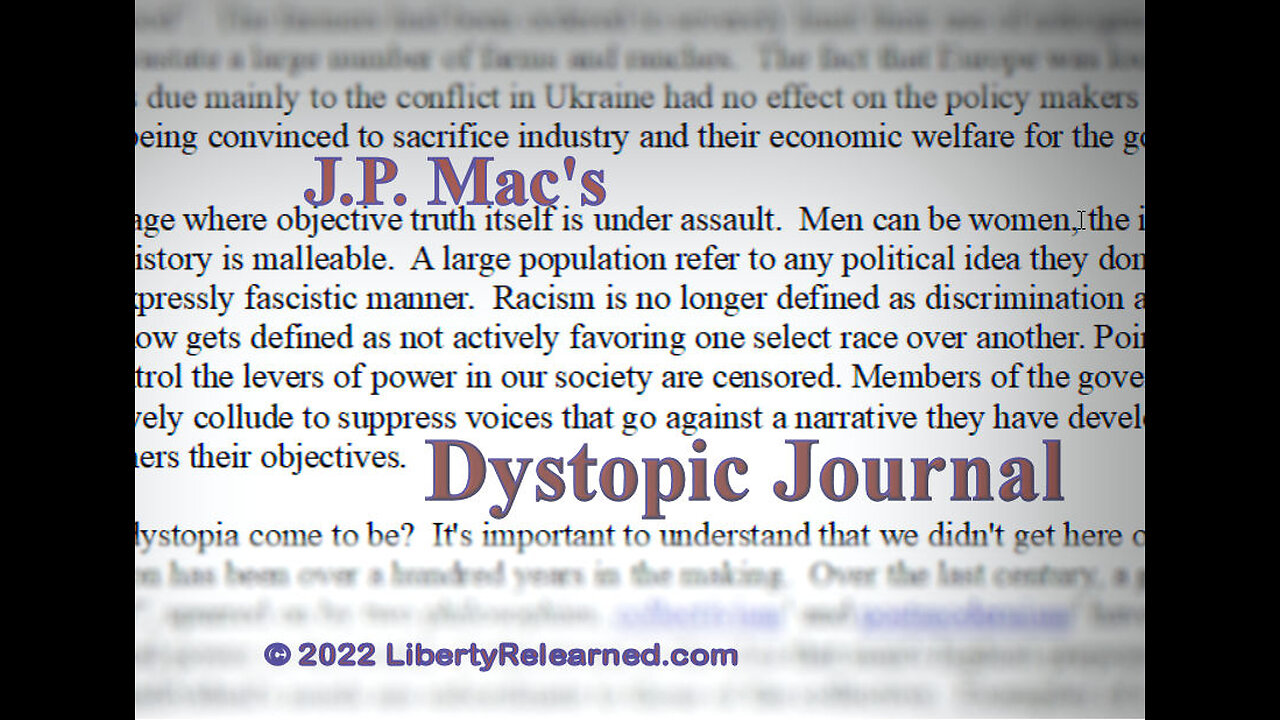Premium Only Content

Radical Intolerance
Radical Intolerance
We continue covering the phenomenon of mass formation described by Mattias Desmet, and how the mass formation creates radical intolerance against anybody not caught up in the mass formation. Why did we have to deal with “mask Karens” telling us to wear a mask during COVID, and why were people skeptical about the COVID vaccine dubbed “anti-vaxxers”? Why are people skeptical of the climate-change alarmism called “climate-deniers”. How did this phenomenon play out in the past century with the fascists and communists?
From The Psychology of Totalitarianism by Mattias Desmet:
“We have to add one more important characteristic to the problematic psychological properties of mass formation: radical intolerance of other opinions and strong tendency toward authoritarianism. To the masses, dissident voices appear 1) antisocial and devoid of solidarity, because they refuse to participate in the solidarity that the mass formation creates; 2) completely unfounded as critical arguments are no assigned any cognitive or emotional weight within the narrow circle of attention of the masses; 3) extremely aversive because they threaten to break the intoxication and in this way confront the masses again with the negative situation that preceded the mass formation (lack of social bond and meaning, indefinable fear and unease); 4) extremely frustrating because they threaten to remove the venting of latent aggression.”
This goes a long way towards explaining the kind of vitriol and condescension so prevalent on the left nowadays towards anybody who refuses to go along with them. This explains the steep rise of authoritarianism, especially in the West around COVID and climate-change.
-
 0:46
0:46
JP Mac's Dystopic Journal
20 days agoDystopic Journal: The Truth Comes Out (clip)
42 -
 LIVE
LIVE
Barry Cunningham
1 hour agoLISA COOK | ADAM SCHIFF | LETITIA JAMES | ARE THEY BEING SACRIFICED BY THE DEEP STATE?
2,859 watching -
 LIVE
LIVE
MattMorseTV
1 hour ago $1.22 earned🔴Trump just SHATTERED the PROJECTIONS.🔴
661 watching -
 8:00:13
8:00:13
Dr Disrespect
9 hours ago🔴LIVE - DR DISRESPECT - GEARS RELOADED GLOBAL LAUNCH - CRUSHING LOCUST
87.4K12 -
 LIVE
LIVE
SpartakusLIVE
5 hours ago$20,000 Hide and Seek Tourney w/ Stonemountain64 || #1 Rat wins the BIG CHEESE
348 watching -
 1:06:27
1:06:27
BonginoReport
3 hours agoBig Bad JB Threatens Trump! - Nightly Scroll w/ Hayley Caronia (Ep.120) - 08/26/2025
81.3K36 -
 1:02:26
1:02:26
Kim Iversen
3 hours agoIran Rejects Nuclear ‘Spy’ Inspectors — War Next?
28.6K73 -
 DVR
DVR
StoneMountain64
7 hours agoWARZONE LEGEND RETURNS. GHILLIE SUIT $20k TOURNEY.
50.7K3 -
 1:06:33
1:06:33
TheCrucible
3 hours agoThe Extravaganza! EP: 27 with Guest Host: Rob Noerr (8/26/25)
21.1K3 -
 DVR
DVR
GloryJean
10 hours agoHide & Seek Tournament w/ Spartakus, StoneMountain64 & Stevie
11.3K